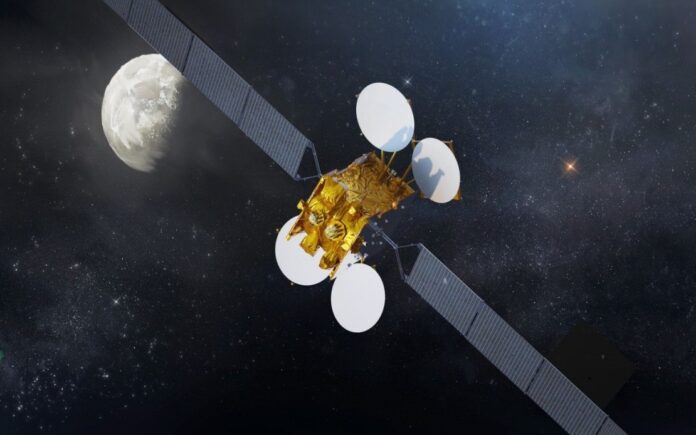KUALA LUMPUR, June 21 — The MEASAT-3d satellite, which will be launched on Thursday (June 23), will significantly improve the country’s internet services and speeds, especially in rural areas.
MEASAT Satellite Systems Sdn Bhd (MEASAT) chief operating officer Yau Chyong Lim said the launch will enable his company to help create an inclusive digital society, and support high-speed broadband applications such as the Fourth Industrial Revolution (IR4.0), Internet of Things (IoT) and telemedicine.
“Through MEASAT-3d and the CONNECTme NOW services, we aim to fill the broadband gap in locations that do not have mobile 4G, 5G or fibre network coverage in Malaysia, to provide internet access to marginalised populations,” he told Bernama.
Yau said that MEASAT-3d will be launched from the European Spaceport in Kourou, French Guiana, and the Malaysian government will be represented by the Ministry of Communications and Multimedia (K-KOMM) secretary-general Datuk Seri Mohammad Mentek.
He also said that in the capital, a special event will be organised to enable the guests to watch the launch live and is expected to be attended by guests of honour including Prime Minister Datuk Seri Ismail Sabri Yaakob and Minister of Communications and Multimedia Tan Sri Annuar Musa.
Yau said the launch of MEASAT-3d was made possible with the support of K-KOMM, as well as the Malaysian Communications and Multimedia Commission.
According to him, MEASAT fully supports the government’s aspirations to achieve the target of 100 per cent internet access by 2025 through the Malaysia Digital Economy Blueprint (MyDIGITAL) and also the National Digital Network (JENDELA) initiative for connecting and digitalising the nation.
“In the long run, it promises to improve the quality of life of all Malaysians, including those living in the most remote areas of the country,” he said.
Yau also said that MEASAT-3d will ensure continued growth and continuity of service for the world’s leading broadcasters, as well as Direct-to-Home (DTH) satellite television to over 20 million households across Malaysia, Indonesia and India.
He added that the satellite is owned by MEASAT, a local company wholly owned by Malaysians, but MEASAT-3d’s service capabilities are vast, covering Southeast Asia, Asia Pacific, Africa and Southern Europe.
Yau said that MEASAT-3d, which is MEASAT’s newest and most advanced satellite, is estimated to cost RM1.2 billion.
“MEASAT-3d will complement MEASAT-3a and MEASAT-3b at 91.5 ° E hotslot, which provides increased and excess capacity for Astro’s DTH services, as well as broadcasting, telecommunications, and broadband internet services. The MEASAT-3d satellite has a lifespan of 18 years,” he said.
MEASAT-3d uses the Eurostar E3000 geostationary satellite model, built by Airbus Defence and Space. Airbus is a global pioneer in the aerospace industry, operating in the commercial aircraft, helicopters, defence and space sectors.
Yau said by using High Throughput Satellite capacity on MEASAT-3d, MEASAT is able to increase broadband processing capacity 10-fold to 30 gigabits per second (Gbps), thus enabling access to high-speed broadband even in limited areas or with no land connection.
“High-speed internet will be improved from the current download speed of 30 megabits per second (Mbps) to 100 Mbps, allowing users to stream heavy-data content such as 4K or 8K videos.
“MEASAT-3d will be able to bridge the digital divide in areas not covered by 4G or 5G or fibre technology in Malaysia,” he said.
He added that MEASAT-3d could be leveraged to offer data, voice, and video services to three to five per cent of the population (about two million people) who still do not have fibre or wireless broadband connection.
















